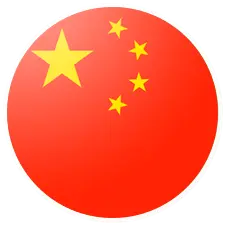
Learn Mandarin Chinese at home, at work, or online
Mandarin Chinese Language Guide
Chinese is becoming one of the most popular foreign languages in Australia, and for a good reason, since if you master it, you’ll be able to access amazing opportunities all around the globe and meet wonderful people. On top of that, if you become bilingual, you’ll be able to discover the fascinating Chinese culture in a way that most English speakers can’t, as there are many aspects of the Chinese way of life that are not easy to understand if you don’t speak the language, so if you’re a curious person, and you’re looking for a way to expand your horizons, starting a Chinese course this year is one of the smartest things you can do.
What’s more, even if you’re not particularly interested in travelling or getting to know other cultures, you should still consider learning this amazing language for the positive impact it can have on your career, as having Chinese on your CV will make you more employable in Australia and the rest of the world. Now that you’re aware of this, you probably can’t wait to start learning. To help you to become a fluent speaker more quickly, here’s a short guide full of tips and recommendations to learn Chinese more effectively.
What’s Pinyin and Why You Should Learn It
The reason why learning Chinese can be so intimidating at first is because its grammar, vocabulary, and writing system are completely different from English. Fortunately for Chinese learners, pinyin was invented, as this writing system created in the 20th century makes learning Chinese much easier for Westerners. Pinyin is a way of writing Chinese using the Roman alphabet based on its pronunciation, and if you take the time to learn it, you’ll be able to make progress much faster. To illustrate this, here are some of the most important benefits of learning pinyin.
- It allows beginners to start speaking Chinese quickly, as it helps you to pronounce even the words you don’t know properly.
- It will help you understand the four Chinese tones thanks to its visual reminders, such as the ones in mā, má, mǎ, and má that indicate if the vowel sound in these syllables has a high level, rising, falling rising, or falling tone.
- It allows you to type Chinese into a computer, so it’s great to chat with natives or take notes in Chinese.
Learn Chinese Grammar
If you’re completely new to Chinese grammar, I have good news for you: it’s not as hard as it sounds. In fact, although sentence structure is completely different from English, there are many aspects of Chinese grammar that are relatively easy to learn. Don’t believe us? Let’s take a look at some of them.
- Unlike most languages, there are no verb conjugations, so you won’t have to worry about irregular verbs. Even when you use different tenses, verbs don’t change, so if you want to know if someone is talking about the past, the present or the future, you simply have to check the rest of the sentence for context.
- Words in Chinese don’t have plural forms, which means nouns, pronouns and adjectives don’t change according to numbers. If you want to indicate that something is plural, you just add a phrase or a character that denotes the number of the object in question.
- There are no articles, so you won’t have to spend time learning how to say “the”, “a” or “an” in Chinese.
Important Rules to Understand Chinese Grammar
Now that we’ve explored the easy aspects of Chinese grammar, let’s take a look at some basic rules that will help you understand the way it works.
• Just like in English, the basic sentence order is subject - verb - object, so you won’t find it difficult at all to get used to the Chinese sentence pattern. Here’s an example.
他 踢 足球。
S V OHe plays soccer.
However, this is only true for simple sentences, as once you start to write more complex ones, you’ll find patterns like Subject–Adverbials–Verb–Complement–Object, which is where Chinese grammar starts to vary from English, but if you’re just starting, focus on mastering simple sentences first.
• There’s another sentence structure that it’s pretty common in Chinese, and it’s called topic - comment. Whereas in English and other European languages, we give importance to the subject of the sentence, in Chinese and other Asian languages they give importance to the topic of a sentence. Because of this, if you want to express an idea in Chinese and you want to sound natural, you should say the topic you want to talk about first, and then say what you want about it. To illustrate this, here’s an example.
咖啡我不喜欢。
Kāfēi wǒ bù xǐhuan. I don’t like coffee.
Literally, “Coffee, I don’t like.”
• Adjectives typically go before nouns, and because this is also the case in English, you won’t have a hard time remembering this. Let’s take a look at some examples.
漂亮的女孩
piàoliang de nǚháia pretty girl
他们吃白饭。
tāmen chī bái fàn.They eat white rice.
Useful Chinese Phrases
In case you are planning to travel to China in the next few weeks, and you don’t have enough time to learn the language, here are some of the most useful phrases you can learn in just a few hours to help you get by.
| Phrases in Chinese | Pinyin | English Translation |
|---|---|---|
| 你好 | nǐ hǎo | Hello |
| 你好吗? | nǐ hǎo ma | How are you? |
| 好的 | hǎo de | OK / Good |
| 不好 | bù hǎo | Not OK/ Not good |
| 谢谢! | xiè xie | Thank you! |
| 对不起 | duì bu qǐ | I’m sorry |
| 早上好 | zǎo shang hǎo | Good morning |
| 晚上好 | wǎn shàng hǎo | Good evening |
| 晚安 | wǎn ān | Good night |
| 再见 | zài jiàn | Goodbye |
After reading this short guide, you probably have a much clearer view on what steps to follow to master the language, so what are you waiting to get started? At Listen & Learn, we’ll help you find an ideal course for you that fits all of your requirements, so if you’re looking for personalised lessons at home or online, contact us today, and you won’t regret it!



